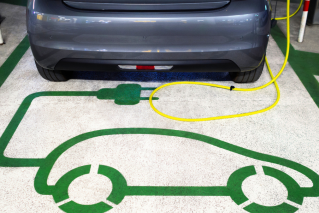Do you have a mortgage? It’s time to cry ‘shark!’

The huge coverage given to Mick Fanning’s shark attack earlier this week is a reminder of how powerful fear is in setting a day’s news agenda.
Never mind that you’re 80 times more likely to die in a traffic accident than from a shark attack. It’s only human to fear those gnashers more than a drive to the local deli.
This principle holds true in public policy too. So we shouldn’t be surprised to see that a policy that costs households $550 a year gets massively more coverage than a policy that will hit many households to the tune of $2000 a year.
• Here’s how long it takes to save for a home deposit
• Ten ways to promote affordable housing
• How to choose that important first mortgage
The first number relates to the Gillard government’s ill-fated carbon tax, which has been in the news in recent days due to a leaked ‘secret plan’ by Labor to bring back carbon pricing, plus its announcement that it wants a renewable energy target (RET) of 50 per cent by 2030.
Those two developments have Coalition frontbenchers, especially environment minister Greg Hunt, running around shouting ‘shark! shark!’ If Labor brings back this hideous policy, it’s sure to eat you!
To be fair, the $550 figure was the Coalition’s number, and it didn’t take account of the tax breaks, and pension and benefit increases announced alongside the Gillard government’s carbon policy in 2011. Their net effect made the hit to households about half that figure – say, $275.

The Coalition appears to be running scared from Labor’s carbon tax policy. Photo: AAP
So what about that $2000 hit to households? It might be nearly four times the Coalition’s claimed carbon tax impost, but nobody seems at all alarmed. There is no political scare campaign based on it – well not yet.
That $2000 figure is based on APRA’s recent tightening of bank capital requirements – a cost that the banks must pass on, either by mortgage rate increases, cuts to deposit rates, or cuts to dividends paid to bank shareholders.
The calculation is simple enough. The average mortgage in Australia is now roughly $450,000, which at the average variable rate of 4.9 per cent, on a 25-year loan, requires a monthly repayment of $2615.
However, Brian Johnson, a banking analyst with Credit Lyonnais Securities Asia (CLSA), reckons the new capital requirements will add about 65 basis points to mortgage rates.
He told the ABC on Tuesday: “As far as I can calculate, if the banks were to pass all of this onto customers it would only require them to lift housing rates by about 65 basis points (0.65 per cent).”
So the 4.9 per cent in the above equation becomes 5.55 per cent, giving a monthly repayment of $2787.
That’s not a huge difference, but it does mean a household with an average mortgage would kiss goodbye $2000 of spending power a year if all the costs of holding more capital were passed onto them.
On the other side of the coin, retirees holding large cash deposits or bank shares might bear the burden instead.
But whether it’s mortgage rates up, or deposit rates and dividend payments down, APRA’s policy will crimp the spending power for certain households.
Shark! Shark!

There is a problem in the mortgage market. Photo: Shutterstock
We have already seen the first tweak to rates – ANZ has added 27 basis points to its variable rate for property investors. Other banks will have to make similar decisions.
The reason this policy change is unlikely to be turned into a scare campaign, is that it is a decision made by an independent statutory body (APRA), and it’s for our own good.
The mortgage market has been allowed to grow too quickly, based on inadequate ‘risk weightings’ given to the loans created.
The fact that the regulator has finally woken up and called an end to the lending orgy is no one’s fault, so how could anyone use the new regulations as a political weapon?
By rights, somebody should. Both major parties shy away from reforming key policies that have led to record levels of household debt. The holy cows of negative gearing and capital gains tax concessions in particular are ignored by the Coalition, and only tinkered with by Labor.
And both sides of politics have opened the migration floodgates when too few homes were being built, and pumped the market with first homeowner grants when prices looked like falling.
The results? A nation swimming in a sea of debt, about to be bitten by regulations that are only needed because politicians have failed to reform tax laws that skew far too much investment towards residential property in the first place.
Meanwhile, even a whiff of carbon, like a drop of Labor blood in the ocean, is enough to start a feeding frenzy among the same media commentators who backed team Abbott’s carbon scare campaign in the run-up to the 2013 election.
By scaring the nation with carbon, they’ll stop voters seeing bigger threats looming in the debts … I mean depths.








